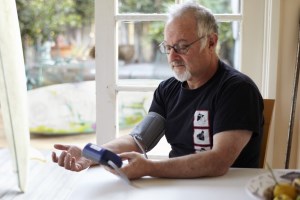Telenor, Sony and Ericsson team to develop smart IoT healthcare devices

Using Telenor Connexion‘s network, Ericsson IoT accelerator for global connectivity, and Sony network communications Europe’s smart IoT services, the three partners are collaborating to enhance real-time location and tracking solutions for different sectors.
Ericsson IoT accelerator is the Ericsson’s IoT connectivity and device management platform, providing enterprises with a unified solution that manages IoT operations of any scale, using worldwide mobile network infrastructure. More than 35 service providers, spanning more than 100 countries, are currently part of the Ericsson IoT accelerator ecosystem. The service currently enables reliable, scalable, and secure connectivity management of IoT devices to more than 5000 enterprises globally. With more than 50 million devices onboarded on to the platform including over 3 million eSIMs, the Ericsson IoT accelerator is a truly global platform.
Sony Network Communications Europe focuses on connectivity solutions and offers IoT cellular platforms such as Visilion and mSafety, providing cellular connectivity and wearable tracking devices.
Anders Stromberg, director, head of wearable platform department, Sony network communications Europe, says “As the use of cellular technology matures, this can have a positive impact on the future of mobile health services and the safety and welfare of end-users.”
Mats Lundquist, CEO of Telenor Connexion, says “We are proud to be a long term partner of forward-thinking companies like Sony Network Communications Europe and to support their business growth and future IoT products and services.”
Kiva Allgood, head of IoT, Ericsson, says, ” This is a great example of how IoT accelerator can liberate our partners’ IoT solutions and services to scale globally and deliver value to end-users.”
Use cases for Sony’s Visilion platform include the logistics and healthcare sectors where sensors can provide information about the real-time position of anything that is connected. Locating valuable hospital equipment with healthcare IoT tracking devices such as ECG machines and hospital beds, knowing where nursing staff and patients are in the hospital, can save time and improve resource allocation.
Similarly, the mSafety platform comes with a user friendly wearables (a device that an end-consumer can wear such as a watch) that can be used in the healthcare, wellness or safety sector. Wearables can be used to monitor users and provide information about health data such as body temperature and heart rate, track location and send alert notifications in case of an emergency.
Ericsson projects that the number of IoT connections, including NB-IoT and Cat-M technologies, will reach almost 25 billion by 2025.
Comment on this article below or via Twitter @IoTGN
